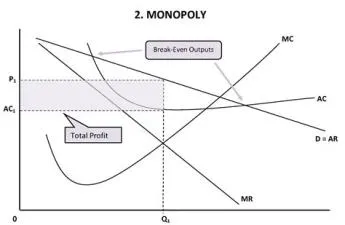Who benefits most from a monopoly?

What are 3 threats to a monopoly?
The disadvantages of monopolies include price-fixing, low-quality products, lack of incentive for innovation, and cost-push inflation.
2024-02-20 08:48:02
What are the benefits of monopoly for kids?
One of the best ways to teach kids about finance, money and life skills is by playing Monopoly
Monopoly
Monopoly is a multi-player economics-themed board game. In the game, players roll two dice to move around the game board, buying and trading properties and developing them with houses and hotels. Players collect rent from their opponents and aim to drive them into bankruptcy.
https://en.wikipedia.org › wiki › Monopoly_(game)
Monopoly (game) - Wikipedia
. There are so many money and life lessons in this game: It teaches kids how to strategize, plan ahead, do math, negotiate with others, deal with winning or losing circumstances and control their emotions!
2024-02-16 19:30:57
What makes a monopoly efficient?
Firms benefit from monopoly power because: They can charge higher prices and make more profit than in a competitive market. The can benefit from economies of scale – by increasing size they can experience lower average costs – important for industries with high fixed costs and scope for specialisation.
2024-01-18 23:18:16
Can a monopoly break even?
In the long-run, the demand curve of a firm in a monopolistic competitive market will shift so that it is tangent to the firm's average total cost curve. As a result, this will make it impossible for the firm to make economic profit; it will only be able to break even.
2023-11-09 06:43:17
- Recommended Next Q/A:
- Is fleeca job 4 players?



